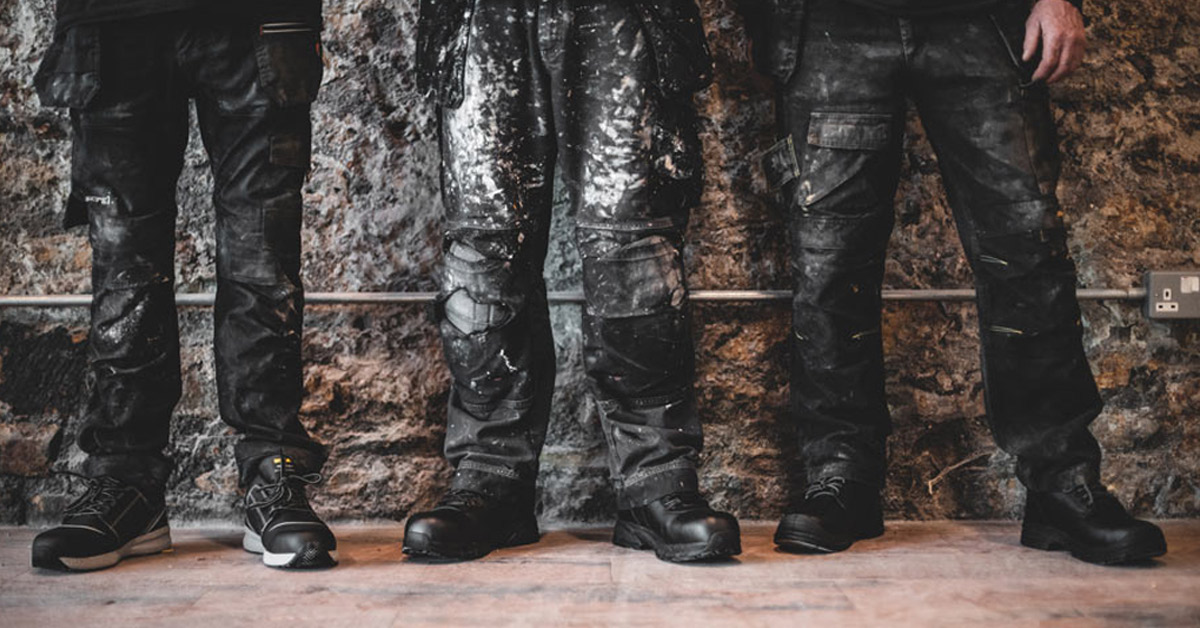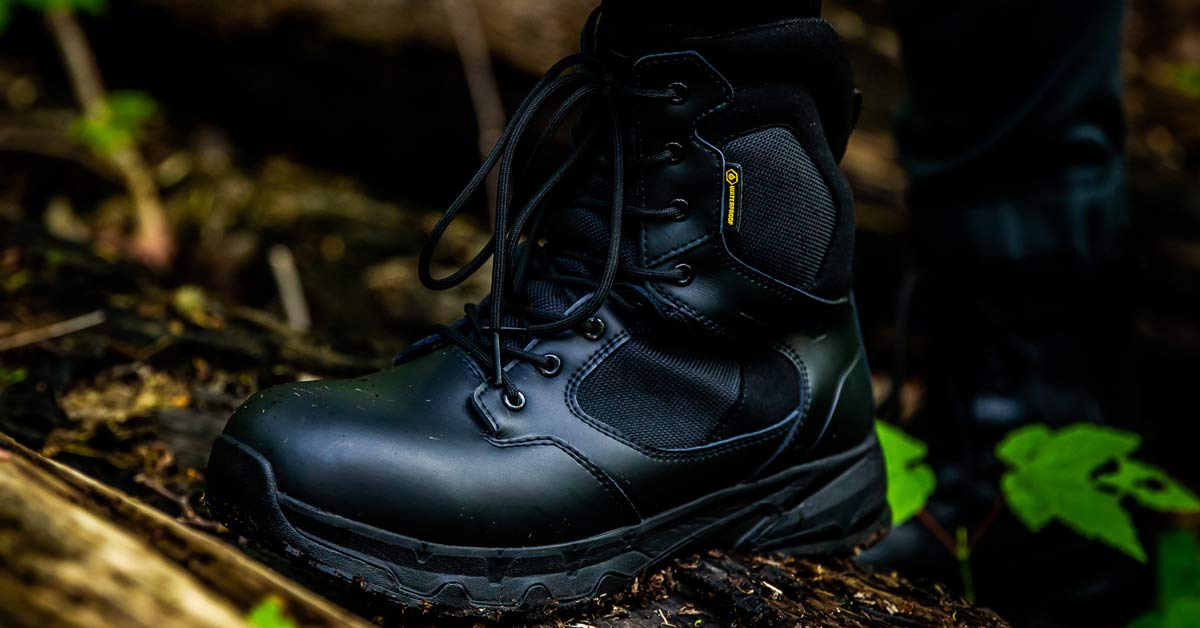The autumn and winter seasons in the UK are known to be dark, wet and blustery. Days get shorter and nights get longer. Outdoor workers find themselves getting lashed by wind and rain more during these seasons than any others. Safety, protection against the elements and warmth are at the forefront of most outdoor workers’ minds.
Preparing for darker, wetter days means making sure employees’ feet are protected and insulated, especially if they work in colder climates. You might be asking, “which type of work boot is best: insulated or waterproof?” The answer to this question will depend on factors such as work environments, weather conditions and specific occupational duties.
In this article, we will be comparing the advantages of wearing insulated work boots to waterproof boots. Learn which features from Shoes For Crews will help outdoor workers perform their jobs better based on specific professions.
Advantages of wearing insulated work boots
1. Keep feet warm
Employees working in colder temperatures for longer periods of time find the materials inside insulated boots help to keep feet warm. The positive side of this is that heat will be locked in and the elements will be kept out.
However, on the flip side, insulation can cause overheating which may not be appreciated by customers searching for a more breathable work boot. Shoes For Crews work boots are comfortable and durable and there are many shoe styles available to match a variety of roles from security officers to police and military personnel.
I am text block. Click edit button to change this text. Lorem ipsum dolor sit amet, consectetur adipiscing elit. Ut elit tellus, luctus nec ullamcorper mattis, pulvinar dapibus leo.
2. Best for working in colder, harsher elements
Cold weather requires extra attention and care to the extremities, especially when working in harsh conditions. Performing work outside can differ greatly from working inside. That is why it is important to have footwear that can carry workers through the day and even on into the night. Potential snowfall in some areas makes insulated boots a high priority for crews who must deal with it.
3. Perfect for workers who spend longer time periods in colder temperatures
Working outside can translate to an increased need to maintain body heat. The good thing about moving around a lot and standing up all during a regular shift is that the body will naturally be warmer. However, a worker’s feet have a tendency to get colder due to many factors. When natural body heat is not enough, insulated work boots can prevent cold feet. This can result in better job performance and added focus, which are two crucial elements in these industries.
Advantages of wearing waterproof work boots
1. Best for workers in rainy climates
When the main priority is to keep water out, water-resistant boots can get the job done. If crews are spending more time in wetter climates and do not have adequate time to dry their work boots, this is where water-resistant comes into play. Consider a taller boot if the job requires wading through water or muddy puddles.
2. Option to add warm socks
Layers of clothes and socks that can be removed during the workday are often preferred when working outdoors. Non-insulated boots can be a preferred choice because maintaining dry feet is more important than keeping feet warm. When looking for a pair of warm socks to add to a work uniform, choose materials that will not rub against the toes and are made with antimicrobial fibres to combat odours and bacteria.
3. Breathable materials
A common issue found with work boots is the availability of breathable materials. It is one of the features that can often be overlooked but has a direct impact on comfort. If officers or medical crews are working in warm and wet environments, their feet will still need to breathe or else the presence of factors such as sweat and bad odours can lead to bacteria build-up and mould.
4. Water-resistant uppers
A good water-resistant work boot will not only keep feet dry and protected but can repel water throughout the whole day. The water-repellent uppers in our boots can help crews work through even the wettest of shifts and end the day on a dry note.
5. Light-weight construction
Heavy footwear can become extremely uncomfortable and tiring to wear over long periods of time. If an employee’s job role consists of covering lots of ground walking and standing on their feet, a lightweight waterproof boot would be preferred.
At Shoes For Crews, our lightweight composite technology is designed to take pressure off the back, knees and joints. This component will help keep crews dry and focused on the task at hand all throughout the workday and beyond.
As you can see from the features discussed in this post, different job roles can benefit from wearing insulated or waterproof work boots. The feature of choice may vary based on job role duties and environments in which teams work. Insulated work boots may perform better for crews spending longer amounts of time in the elements while water-resistant work boots are preferred among rainy climate workers. There’s a boot to suit all needs amongst Shoes For Crew’s range of protective and water-resistant footwear. With protective and water-resistant work boots from Shoes For Crews, the perfect boot is out there.
Would you like to receive more information on a specific pair of insulated or waterproof boots for your customers? We would be happy to show you more work boot options to best suit their needs. Contact us to learn more and find the best fitting work boot for their industry.


